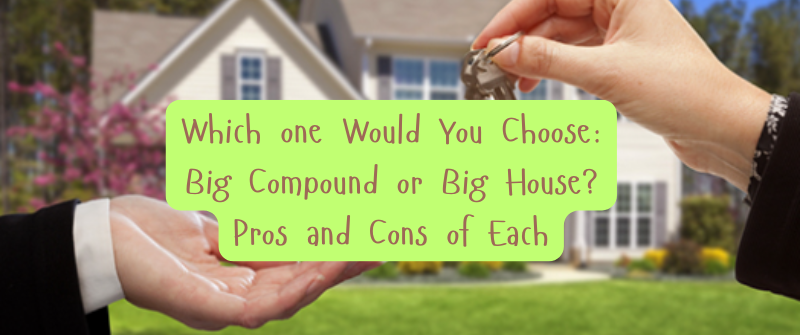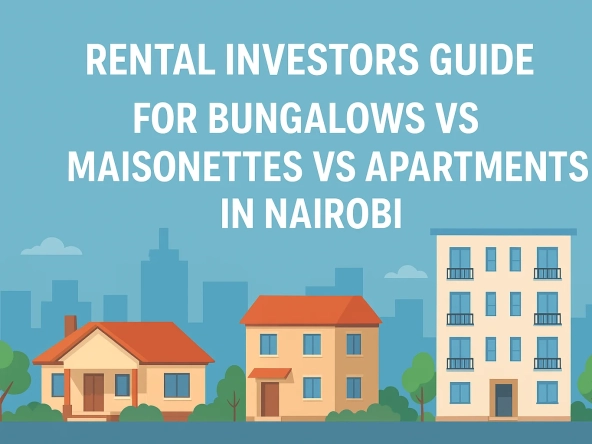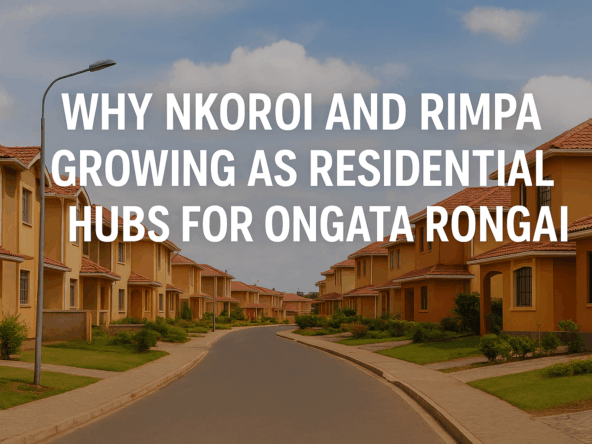When buying a home in Kenya or anywhere, it is important to consider the size of the compound and the backyard.
With most houses sitting on eighth-acre plots, every inch of space is important as it gives you some outdoor life and space for parking and family time.
Big compound or a Big house? Which one to Consider

Deciding whether to buy a home with a big compound or a big house depends on your personal preferences, lifestyle, and long-term goals. Here are some factors to consider for each option:
Buying a Home with a Big Compound
Pros:
- Outdoor Space for Activities: A larger compound provides ample outdoor space for recreational activities, gardening, or entertaining guests, making it ideal for families and those who enjoy spending time outdoors.
- Privacy and Separation: A big compound often allows for more privacy from neighbors, providing a peaceful retreat and the opportunity to create distinct outdoor areas.
- Future Expansion: If you value flexibility, a larger compound may offer space for future expansions, such as adding a pool, a guest house, or additional landscaping features.
- Potential for Landscaping: A big compound allows you to create beautiful gardens or outdoor spaces that enhance the property’s aesthetics and provide a serene environment.
Cons:
- Maintenance Responsibilities: A larger outdoor space requires more upkeep, which can be time-consuming and costly, including landscaping, lawn care, and maintenance of outdoor structures.
- Higher Costs: Generally, properties with big compounds may come with higher costs, including property taxes, maintenance, and utilities.
Buying a Home with a Big House
Pros:
- More Interior Space: A big house provides ample room for family members, guests, and various activities indoors, making it ideal for larger families or those who entertain frequently.
- Easier Maintenance: A smaller outdoor space means less time spent on yard work and maintenance, allowing you to focus more on enjoying your home.
- Comfort and Amenities: Larger homes often come with added features and amenities, such as multiple bathrooms, spacious kitchens, and entertainment areas, contributing to a more comfortable living experience.
Cons:
- Limited Outdoor Space: A big house may come with a smaller yard or compound, which can limit outdoor activities, gardening, or potential expansions.
- Less Privacy: A large home on a smaller lot may feel closer to neighbors, reducing privacy compared to a property with a big compound.
How to Evaluate a Compound for a House Before Buying
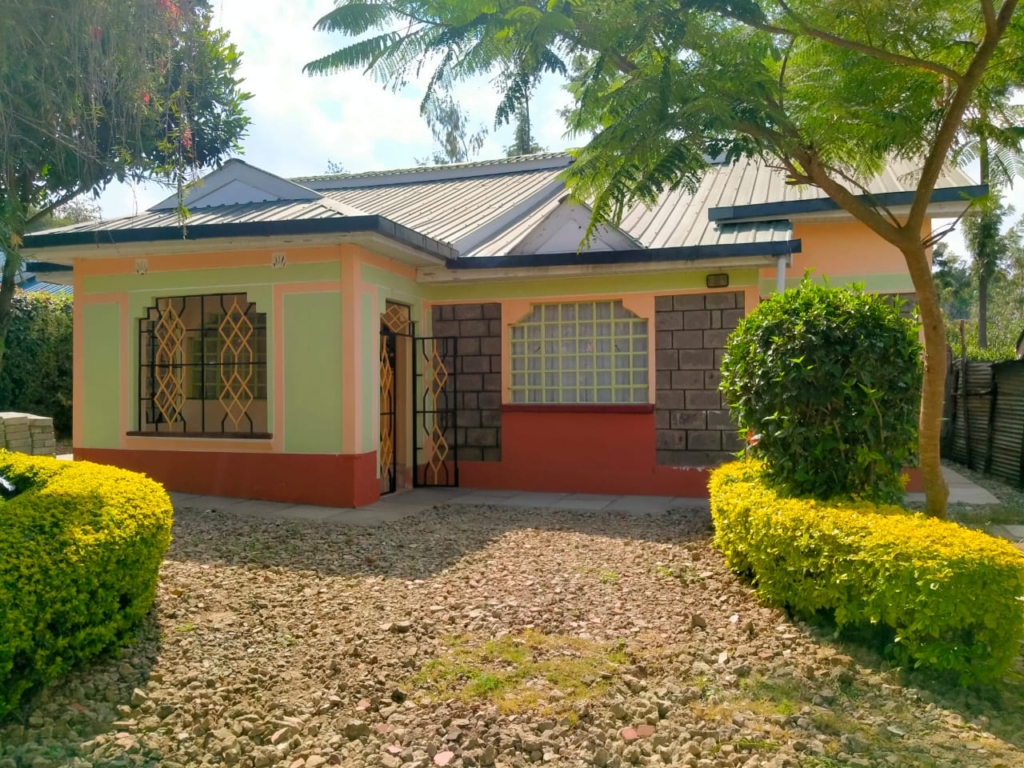
Before you buy a house, it is good to keenly evaluate all its features and consider the advantages over the limitations. One of the areas to evaluate is the backyard or the compound.
To do this, consider several key factors to determine its functionality, aesthetics, and long-term value.
Here’s a detailed guide to help you evaluate the compound and the backyard:
1. Size and Layout
- Proportionality to the House: Ensure the backyard is appropriately sized for the home, providing enough outdoor space without overwhelming the property or feeling too small.
- Usable Space: Look at how the yard is laid out. A well-designed backyard should have a balance of open areas for activities and room for landscaping or gardening.
2. Maintains Privacy
Let us start with Fencing and Barriers. Here, check if there’s fencing or natural barriers like trees or shrubs to provide privacy from neighbors or busy streets. The level of privacy can affect your enjoyment of the space.
Also, evaluate if there are views from neighbors. For this, assess how exposed the backyard is to surrounding homes.
Consider how easily neighbors can see into the space and whether that’s something you’re comfortable with.
3. Landscaping and Maintenance
- Condition of Lawn and Plants: Look for healthy grass, well-maintained plants, and proper landscaping. Overgrown vegetation or dead plants may indicate high maintenance needs.
- Irrigation System: Check if the backyard has an irrigation system or if it will require manual watering. Proper irrigation helps maintain the lawn and garden easily.
4. Outdoor Living Potential
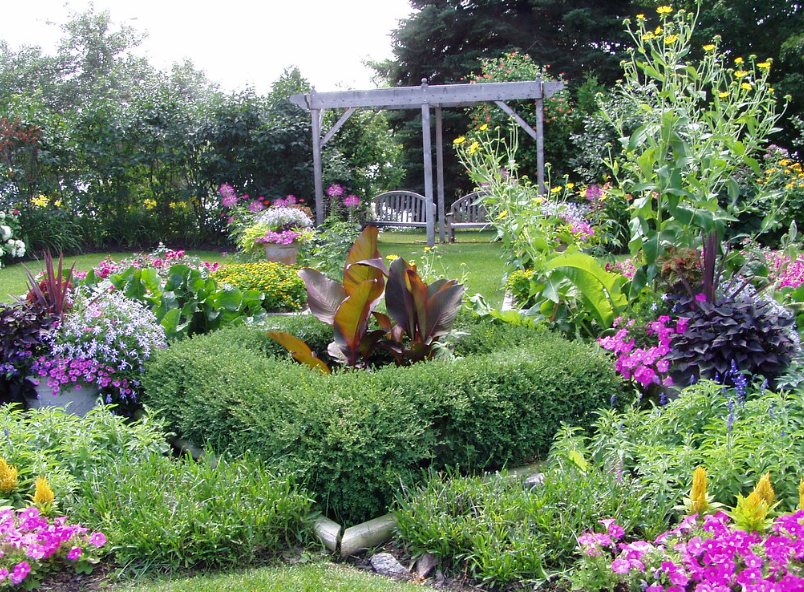
Check if there is a deck, patio, or paved area for outdoor dining, entertaining, or relaxing. A functional outdoor living space adds significant value and appeal.
While at it, assess whether there’s space to add features like a garden, pool, or outdoor kitchen if desired. Consider the flexibility the yard offers for future enhancements.
5. Sunlight and Shade
- Sun Exposure: Evaluate how much sunlight the backyard gets throughout the day. If you’re a gardener or want outdoor seating areas, sunlight exposure is key.
- Shade Availability: Check for natural shade from trees or man-made options like pergolas or umbrellas. Too much sun can make the yard uncomfortable in warmer months.
6. Drainage and Grading
Ensure the backyard slopes away from the house to prevent water from pooling near the foundation. Proper drainage prevents flooding and water damage.
Also, look for signs of drainage issues like waterlogged soil, standing water, or erosion. Well-drained soil is essential for a healthy backyard.
7. Safety Features
- Play Areas and Pools: If you have children, assess the safety of play areas, including any fencing around pools or other water features.
- Outdoor Lighting: Check if the yard has proper outdoor lighting for security and nighttime use. Adequate lighting increases safety for evening activities.
8. Environmental Considerations
Consider how windy or noisy the backyard can get. High fences or natural barriers like hedges can reduce wind and block noise from busy roads or neighbors.
In addition, check for signs of pests or wildlife that could cause damage to the yard, such as burrows, nests, or overgrown areas that may attract critters.
9. Utilities and Access
- Outdoor Utilities: Look for any outdoor electrical outlets, water spigots, and storage areas, as these are essential for using and maintaining the space.
- Accessibility: Ensure there’s easy access to the backyard from the house, ideally through a sliding door or patio door. Convenient access enhances the usability of the outdoor space.
Evaluating these factors will help you assess whether the backyard meets your needs in terms of space, functionality, and future potential.
A well-maintained and thoughtfully designed backyard can significantly enhance the overall enjoyment and value of a home.
Importance of a Backyard to a House
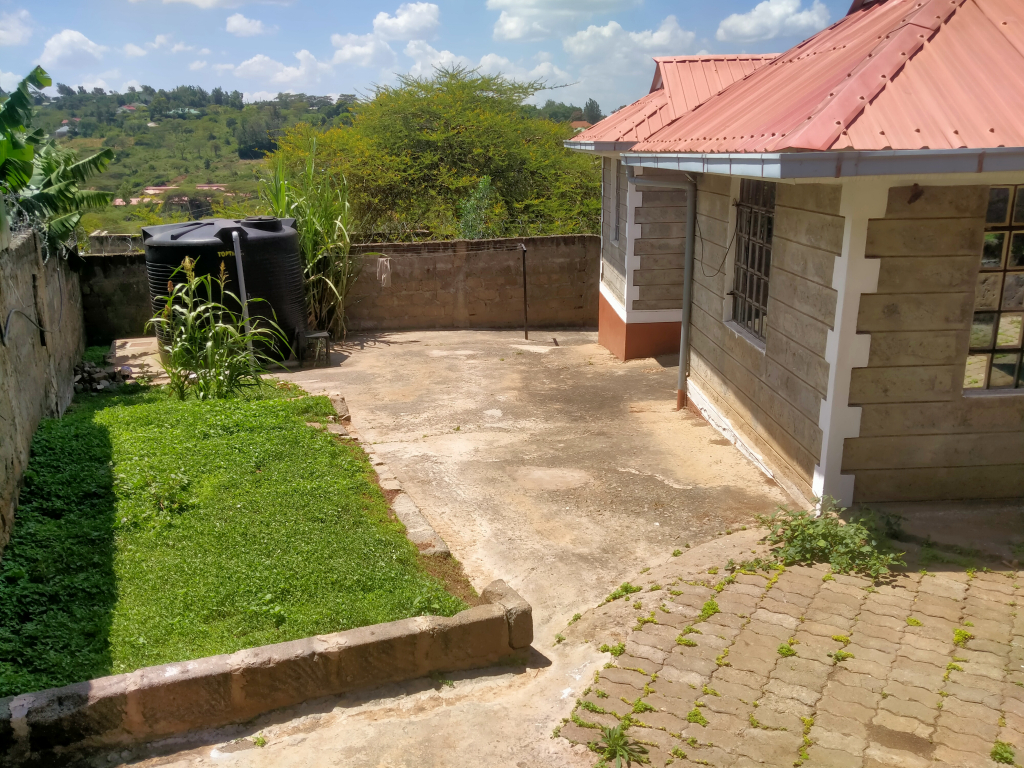
The backyard is an essential component of a house, offering numerous benefits that enhance the overall living experience. Here are some key reasons why having a backyard is important:
1. Outdoor Recreation and Relaxation
- Space for Activities: A backyard provides a private area for recreational activities such as gardening, playing sports, or hosting gatherings. It serves as an extension of the living space, allowing families to enjoy the outdoors.
- Peaceful Retreat: A well-maintained backyard can be a tranquil escape from the hustle and bustle of daily life. It offers a space for relaxation, whether it’s lounging on a patio, enjoying a book, or meditating in nature.
2. Family Bonding
- Quality Time: Backyards create opportunities for family bonding through outdoor activities, barbecues, or simply spending time together in a natural setting. They can facilitate meaningful interactions and strengthen family relationships.
- Safe Play Area for Children: A backyard offers a safe space for children to play, explore, and develop their physical skills. Parents can supervise their kids while allowing them the freedom to enjoy outdoor play.
3. Enhances Aesthetic Appeal
- Curb Appeal: A well-designed and landscaped backyard contributes to the overall aesthetics of the property, enhancing curb appeal. Beautiful outdoor spaces can significantly increase the attractiveness of a home to potential buyers.
- Personal Expression: Homeowners can personalize their backyards to reflect their style through landscaping, decor, and outdoor furniture. This creativity allows for a unique outdoor environment that feels like an extension of the home.
4. Increases Property Value
- Investment Potential: A well-maintained backyard can add value to a home. Attractive outdoor spaces can be appealing to potential buyers, making the property more marketable and potentially leading to a higher resale price.
- Desirable Features: Features like decks, patios, pools, or outdoor kitchens can significantly enhance a property’s appeal, making it stand out in the real estate market.
5. Encourages Healthy Living
- Physical Activity: Backyards promote an active lifestyle by providing space for exercise, gardening, or outdoor games. Engaging in physical activities outside can improve overall health and well-being.
- Connection with Nature: Spending time outdoors can have mental and physical health benefits, such as reducing stress, improving mood, and enhancing creativity. Access to a backyard encourages a connection with nature.
6. Environmental Benefits
- Habitat for Wildlife: Well-planted backyards can provide habitats for birds, butterflies, and beneficial insects, contributing to local biodiversity and ecosystems.
- Improved Air Quality: Trees and plants in a backyard can help filter pollutants, improve air quality, and reduce urban heat, creating a healthier living environment.
7. Social Opportunities
- Hosting Gatherings: Backyards serve as ideal venues for entertaining guests, hosting barbecues, and celebrating special occasions. They provide a space for socializing in a relaxed outdoor setting.
- Community Engagement: A backyard can also foster community relationships, encouraging neighbors to gather and connect, and enhancing the sense of community.
Final Word
In summary, a backyard adds significant value to a home by providing space for recreation, relaxation, and socialization while also enhancing the property’s aesthetic appeal and potential value.
Its benefits extend beyond the physical space, positively impacting the well-being and lifestyle of the occupants.
